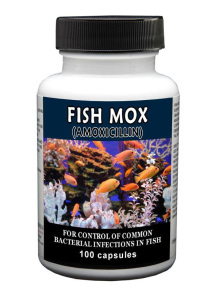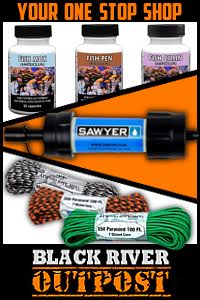By Red Beard.
DISCLAIMER: I am not a medical professional. If possible, always seek professional medical help for diagnosis, medication usage and dosages. I am merely providing general information.
No matter what event thrusts you and your family into a survival situation, illness and injury will always be a hazard. Obviously, if a war were to break out the chances of injury are great, but even if you are living safely on your homestead during a financial meltdown, people in your group can still fall ill. Stockpiling medical supplies is a must for preppers of any level. First aid supplies such as bandages, antiseptics and pain relievers are all readily available over the counter. What happens, though, when one of your group gets an infection that starts spreading? How do you solve that when antibiotics are locked away in pharmacies, only to be issued to the lucky souls who have a doctor’s prescription?
I’ve heard of people saving one dose any time they get prescribed antibiotics. You can slowly build enough to fight one or two infections after the SHTF, but it will take quite a few years and there are dangers associated with not taking your full prescribed course. You could lie to your doctor to make him believe you have an infection so you can stash the course with your medical supplies. Dishonest and illegal, but it’ll get you want you need if you’re comfortable with it. You could resort to buying from a foreign drug maker who doesn’t require a prescription. Those antibiotics may be “the same” but they are made in a plant with less than ideal conditions and minimal quality control.
There is one legal way to get as many antibiotics as you need for your stockpile without a prescription and it comes in the form of fish antibiotics. Not surprisingly, infections work the same way in all animals, so when your fish gets sick, you go to the pet store and buy a bottle of antibiotics to treat the illness. These antibiotics do the exact same things as they would do if you were taking them. Most of them are manufactured in the exact same plant as the human antibiotics, the only difference being that the label says “for aquarium and fish use only”. They are reasonably priced and readily available at any pet store with no prescription.

Fish Mox: Image Courtesy FishMoxFlex.com
Antibiotic Overuse:
Now, nobody should run out and pick up a bottle of Fish-Mox the next time they feel an illness coming on or get a cut that gets infected. As long as we have normal functioning doctors around it is still best to get a professional diagnosis and a legitimate prescription. Especially since the overuse of antibiotics can be extremely harmful by increasing antibiotic resistance in bacteria. Even when the world as we know it has ended, using antibiotics sparingly will be just as, if not more important. Giving the body a chance to naturally fight off the bacteria will help the individual’s immune system become resistant to that bacteria. Only if the infection persists and spreads should you resort to antibiotics.
Fish Antibiotic = Human Antibiotic:
Fish-Mox = Amoxicillin 250mg
Fish-Mox Forte = Amoxicillin 500mg
Fish-Flex = Keflex 250mg
Fish-Flex Forte = Keflex 500mg
Fish-Zole = Metronidazole 250mg
Fish-Pen = Penicillin 250mg
Fish-Pen Forte = Penicillin 500mg
Shelf Life:
Unfortunately, antibiotics are a protein based medication which makes them susceptible to breakdown more rapidly. If vacuum sealed and stored in a cool, dry place they can last a couple years. If you are stuck in a tropical environment you probably have about six months tops. As they decay they do lose effectiveness and can possibly become more toxic or change their allergenic properties.
Side Effects:
Every medication has side effects and antibiotics are no exception. The most common are diarrhea, upset stomach, vomiting and rash. Antibiotic allergies are not uncommon so always ensure the person you are treating is aware of their allergies.
Hazards and Risks:
The use of any medication without extensive knowledge of its proper use will always come with risks. Like I said before, if you can see a doctor, please do. Most bacteria only respond to certain antibiotics. Amoxicillin is a broad spectrum antibiotic which means it works for a wide range of bacteria. This is usually what you get from the doctor when they know you have an infection but don’t know exactly what. Narrow spectrum antibiotics treat more specific bacteria. Using an antibiotic that doesn’t properly treat the bacteria could make you think you are treating a sick person while they could still be getting worse. Another thing to consider is that antibiotics can work indiscriminately and attack harmless or even beneficial bacteria found naturally in the body.
My method is to buy one container each month, so as soon the SHTF I have antibiotics stored in a monthly progression that I can rotate out and get maximum life out of. That gives us two years to learn how to develop our own. I hope this information helps for your future medical needs, but still always do your research, be safe and be prepared.
About Me:
Red Beard is a native Northwesterner, a father and a husband. His goal in life is to keep his family safe. Read more at www.thesurvivalcamp.net









6 comments
Skip to comment form
Great article Red Beard and one of the more overlooked “issues” in the prepping world. Medication will be just as valuable as any other prep when there is a need for it. While, I feel like you hit the nail on the head concerning the alternatives for antibiotics, one issue many will face post-SHTF will be the replacement of the vast array of daily medications that many people are prescribed today.
If anyone is on a daily medication that sustains their life or allows them to function, now would be the time to research natural alternatives for those medications. You can even ask your doctor if there are any natural alternatives for what you are being prescribed or if there is anything you can do now to reduce your body’s dependence on those medications (losing weight, changes in diet, etc.). Unfortunately, there are some conditions where daily medication is the only alternative and without it the individual is going to die (hard truth but still the truth) – in that event, I would recommend getting long term prescriptions (3 or 6 months) and reordering at the earliest opportunity.
I highly recommend looking @ the website Doom and Bloom. Dr Bones is the guru of all things medical/prepper related. His site has an archives section, there are several articles on these exact fish/bird biotics and how to use them. His book has even more info on exactly how a lay person can decide which antibiotics to prescribe themselves for which symotoms during a crash. His book is a must have. He also has great info on shelf life of meds.
As far as daily meds are concerned, alldaychemist is a pharmacy from India that I have used. They are highly reputable and have good customer service.
If you do use them, do not use a debit card. people have had trouble with identity theft. Somewhere along the line people’s info gets stolen. It is not the pharmacy but some 2nd or 3rd party. I personally have had no problems. Very easy ay to stock up meds.
I have used and stored fish antibiotics for a number of years with excellent results. If left sealed and in a cool dark place they should last quite a long time – ten or more years. Even after that they are more likely to gradually lose potency which means you should use 3 instead of 2 (for example). There is a great deal of info available from the military. Search for FDA/DOD SHELF LIFE EXTENSION PROGRAM.
Make sure you get some good books that let you know when to take what and the correct dosage.
Ed
Thanks for the great feedback. I will start looking into some good books on correct usage and dosage and probably write a followup.
Stay safe!
Red
On the Texas gulf coast the shelf life is about 6- 8 months. I’ve used them once for a bad sinus infection, worked well. I keep them in a walk in closet, air conditioned home. Took a new bottle the other day and opened, smelled of rotten egg. Northern or more arid climate might be different. Bottle had 2015 exp date and I had purchased them in Oct of 2014. Even so, I’d still recommend them.
I store and when needed use fish antibiotics; specifically fish mox (amoxicillin) for sinus infections. So far they have worked just as well as what you get from the drug store at a fraction of the cost, mainly because I know when I have a sinus infection, but a visit to the doctor costs at least $100 so the tech can tell what I already know, but without that signature I cant get what I need through the ‘regular’ channels. Can you say ‘monopoly”! If you’re looking for more info on drugs (and other medical subjects) I recommend the Patriot Nurse website, she is a ‘real’ nurse and gives info in an easy-to-understand manner! Good Luck!